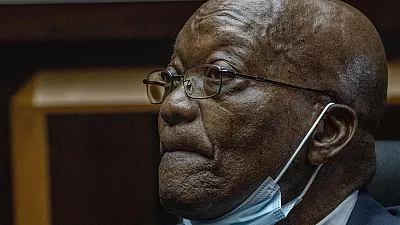Estcourt, South Africa – In a twist of events that has drawn attention to the complexities of the nation’s justice system, Jacob Zuma, the former President of South Africa, was briefly returned to prison on Friday morning. This move came as a response to a judicial ruling deeming his previous release on grounds of ill health as unlawful. However, Zuma’s stint in incarceration was short-lived, lasting only an hour, owing to a remission procedure aimed at alleviating prison overcrowding.
At the crack of dawn on 11th August 2023, the 81-year-old Zuma was admitted to the Estcourt correctional detention facility, as confirmed by Makgothi Thobakgale, the Commissioner of Correctional Services. Swiftly thereafter, he was released, invoking the remission mechanism that seeks to address the pressing issue of overcrowding within the penal system.
Jacob Zuma, who held the presidential office from 2008 to 2018, found himself serving a 15-month prison sentence starting in July 2021. This sentence was a result of his refusal to comply with a court summons related to a corruption inquiry during his tenure. His initial arrest had triggered widespread violent protests across South Africa, tragically claiming numerous lives.
In a turn of events in September 2021, the government’s correctional services department granted Zuma medical parole, citing his deteriorating health condition. This move facilitated his release from prison in October 2022. However, in November of the same year, South Africa’s Court of Appeal deemed the decision to grant Zuma medical parole as unlawful, mandating his return to confinement.
In adherence to the court’s ruling, Zuma was ushered back to prison on Friday, only to benefit from President Cyril Ramaphosa’s strategy of granting remission to nonviolent offenders. This policy aims to mitigate the severe issue of prison overcrowding, which has been underscored as a serious threat to inmates’ well-being, security, and the effective implementation of rehabilitation programs, as stated by Ronald Lamola, the Minister of Correctional Services.
The complex interplay between legal decisions, executive actions, and correctional challenges underscores the intricate landscape within which South Africa’s justice system operates. As the nation grapples with finding equilibrium between justice, rehabilitation, and the management of prison populations, the case of Jacob Zuma continues to exemplify the intricate nature of these deliberations.















